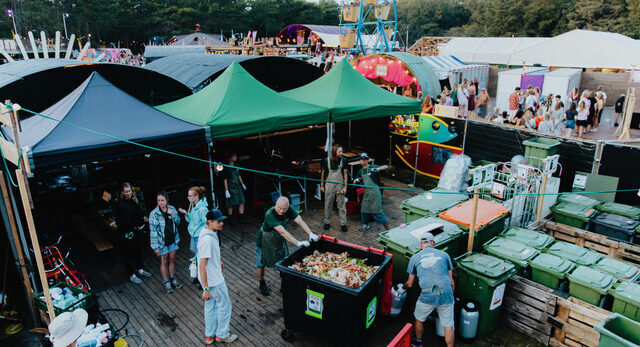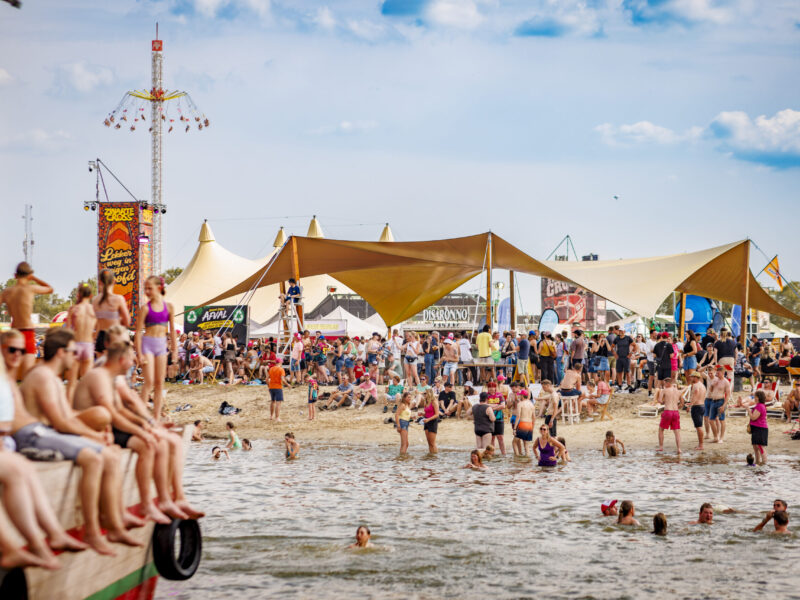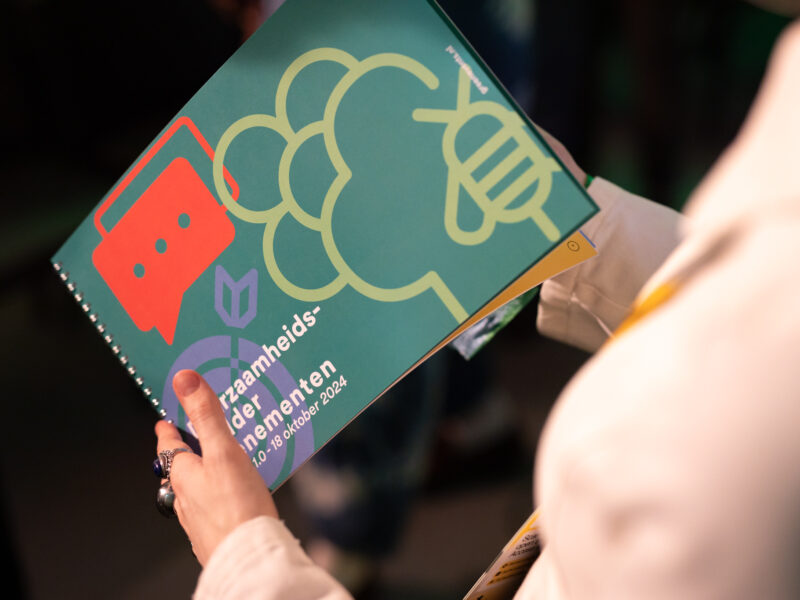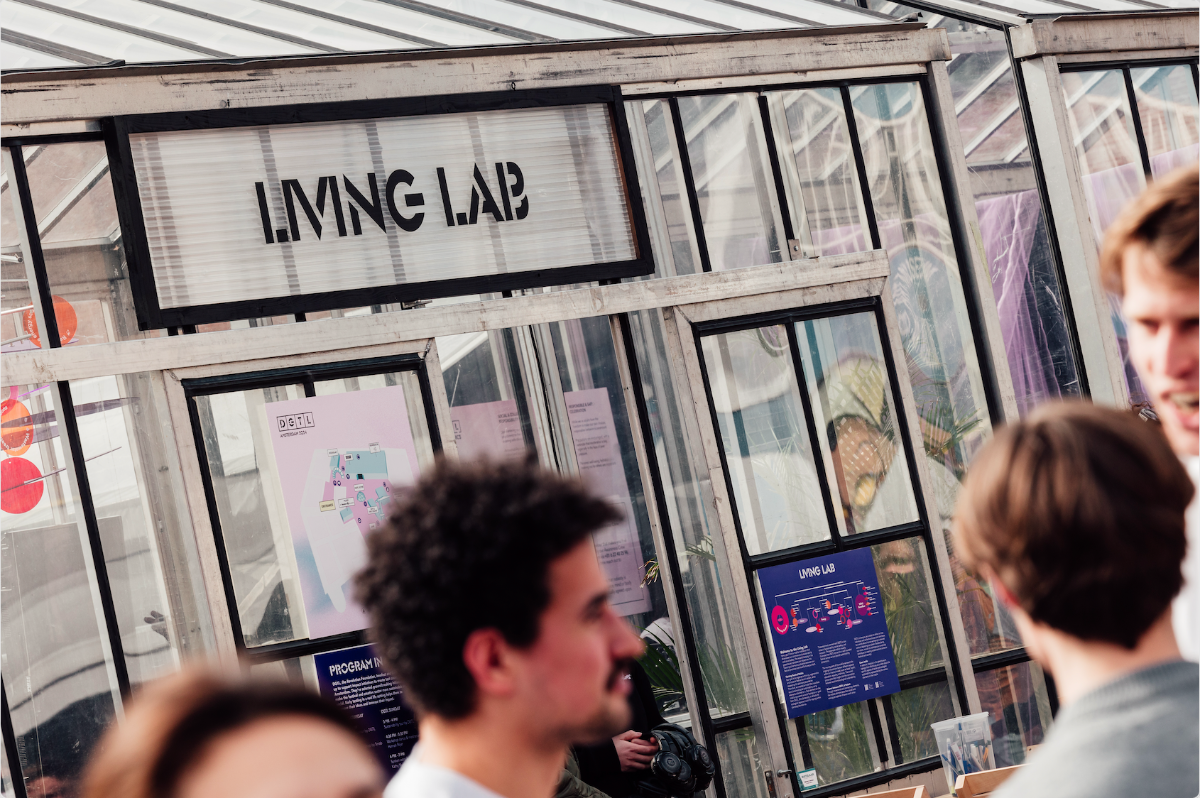
Embracing circularity: DGTL Festival’s approach to sustainability
This article was originally published via Green Deal Circular Festivals and can be found here.
With a focus on environmental responsibility and innovation, DGTL Festival plays a pioneering role in the sustainable events industry. For this article we talk to festival director Ellen Evers about DGTL Festival’s approach to embracing circularity.
What inspired DGTL Festival to embrace and implement a circular approach?
As a festival, we have the power to provoke a radical shift in the behavior of festival-goers, partners, businesses and governments all around the world. We can demonstrate that it is possible to transition to circular and climate neutral systems without having to compromise on quality or experience. We believe that this is the best way to introduce the world to a new economic paradigm.
Could you elaborate on the key pillars of DGTL Festival’s circular approach?
Through sharing knowledge and our views on creating regenerative projects, we stimulate sustainable participation amongst our visitors and partners. Continuously innovating on the festival site and years of development has resulted in our DGTL Framework, which describes the complete metabolism of a festival. We began pinpointing areas where we could enact change, such as reducing CO2 emissions, tackling pollution, and addressing food waste. From there, we established five key pillars of sustainability: resources, energy, mobility, sanitation, and food.
How does DGTL Festival integrate circular principles on Materials, Energy, Travel & Transport, Food & Drinks and Water & Sanitation?
Based on our extensive material flow analysis (MFAs), we define which principles to develop and integrate. There’s a big (and continuously increasing) number of initiatives that we integrate yearly.
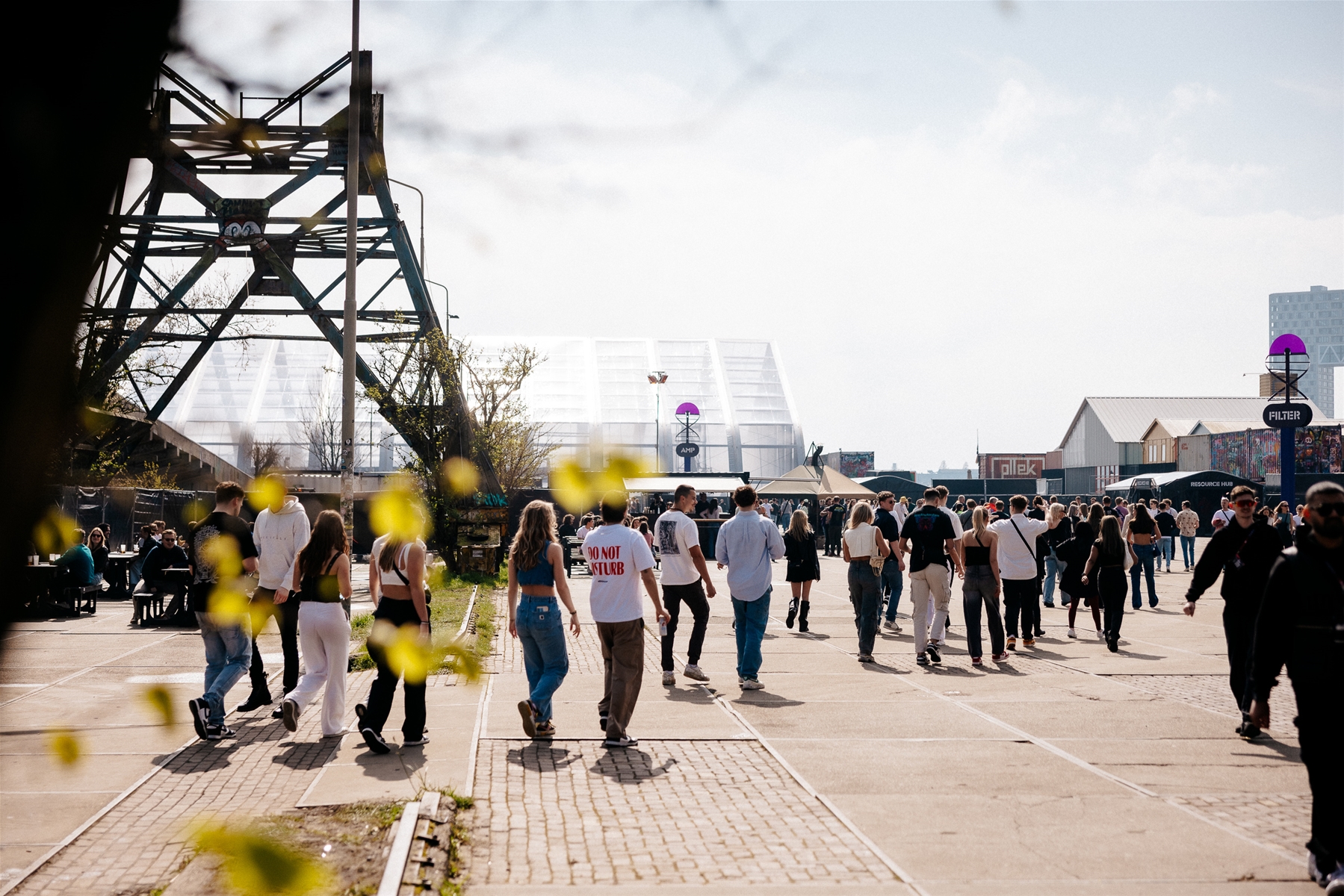
Can you share some concrete examples of circular initiatives being applied at the festival?
As mentioned, the number of innovations and initiatives that we implement is quite a lot to mention, but to give a few examples:
ENERGY:
We work with a smart energy plan, ensuring all energy during our events comes from renewable sources. During DGTL Amsterdam 2024, we implemented a hydrogen generator. We feature the hydrogen generators, specifically the Watermeln unit, at our festival to test their viability. The aim is to accelerate the use of hydrogen generators at other festivals in North Holland, to conduct research and to develop an environmental impact tool. We want to visualize our impact in energy to demonstrate what hydrogen can offer compared to the diesel generator.
FOOD:
The consumption of meat had a significant influence on DGTL’s carbon footprint. Scientific research has shown that the emissions from the meat industry account for nearly 18% of total carbon emissions worldwide, creating a larger environmental impact than the earth’s entire transportation industry. By removing meat from the menu in 2016, DGTL Festival has drastically reduced CO2-emissions and saved large amounts of freshwater and land.
Circular Foodcourt
At DGTL Amsterdam, over 10.000 meat-free meals are consumed each day, creating a substantial organic waste stream and tens of thousands of used disposables. Therefore, DGTL introduced the “Circular Foodcourt”, converting all of DGTL’s food waste (including the biodegradable disposable plates) into 600 kilos of compost in 2019, using advanced composting machines. This compost is used again urban farmers in Amsterdam to grow herbs and vegetables. In doing so, we virtually eliminated food waste and moved away from plastic, proving that even large-scale food consumption and become circular.
WATER & SANITATION:
Water from the IJ, instead of drinkable water, is used to flush toilets at our festival. We implement a circular sanitation system at our events, converting urine to greywater to extract nutrients and reduce drinking water use. The project aims to create a circular nutrient cycle, demonstrating the decentralized conversion of urine into fertilizers and irrigation water.
MOBILITY:
DGTL is a place for international performers and artists that travel from all over the world. We stimulate DGTL to be environmentally friendly, for example by train, but at the same time acknowledge challenges when traveling long distances or on a tight schedule. Great advantages of flying are that it’s fast and economical, but it also comes with a huge burden on our environment. We are very delighted we have found an answer to reduce the travel impacts on the environment thanks to our partner, SKYNRG, the global leader in Sustainable Aviation Fuel (SAF). Sustainable Aviation Fuel is produced from sustainable resources, like used cooking oil, and can make sure that our artists are flying to DGTL with zero emissions. As our artists compensate for their travels, we encourage our visitors to join this collective effort and do the same.
MATERIALS:
At DGTL, we minimize waste by designing our event circular. It is a process by which products are designed with ease of assembly and disassembly in mind. Next to that, consumption material waste becomes the resource for new products. As such, we moved away from waste collection areas behind the scenes, to a “Resource Street”, which is central for all visitors to see. The Resource Street consists of a “Recycle Hub” and a “Resource Storage”. The Recycle Hub works to separate all visitor waste, so the new “resources” can be picked up for further use.
Deposit system for cups
One of the most visible components of the Sustainability plan is the introduction of the deposit-system for cups. Cups that can be used are rPet, compostable or hardcups (our preference). With the last option, visitors no longer get drinks served in traditional disposable soft cups, but in a reusable hardcup. This not only saves us a huge amount of plastic waste, but also makes visitors reflect on their current “linear” behavior (take-make-waste) and it presents a new perspective on reusing precious resources.
INNOVATION & DEVELOPMENT:
The ‘Groen & Inclusief Voorwaarts’ project, led by Stichting Innofest, Oerol, The Revolution Foundation and DGTL, aimed to foster up to 7 innovative sustainability and inclusivity projects. By combining resources, experiences, and expertise, the initiative supports practical tests at festivals, fostering resilience and progress in the cultural sector. The innovations took place at a central point on the festival site, resulting in an innovative and inspiring Living Lab. The living lab served not only to inform but also to captivate our audience, encouraging active participation in our ongoing initiatives.
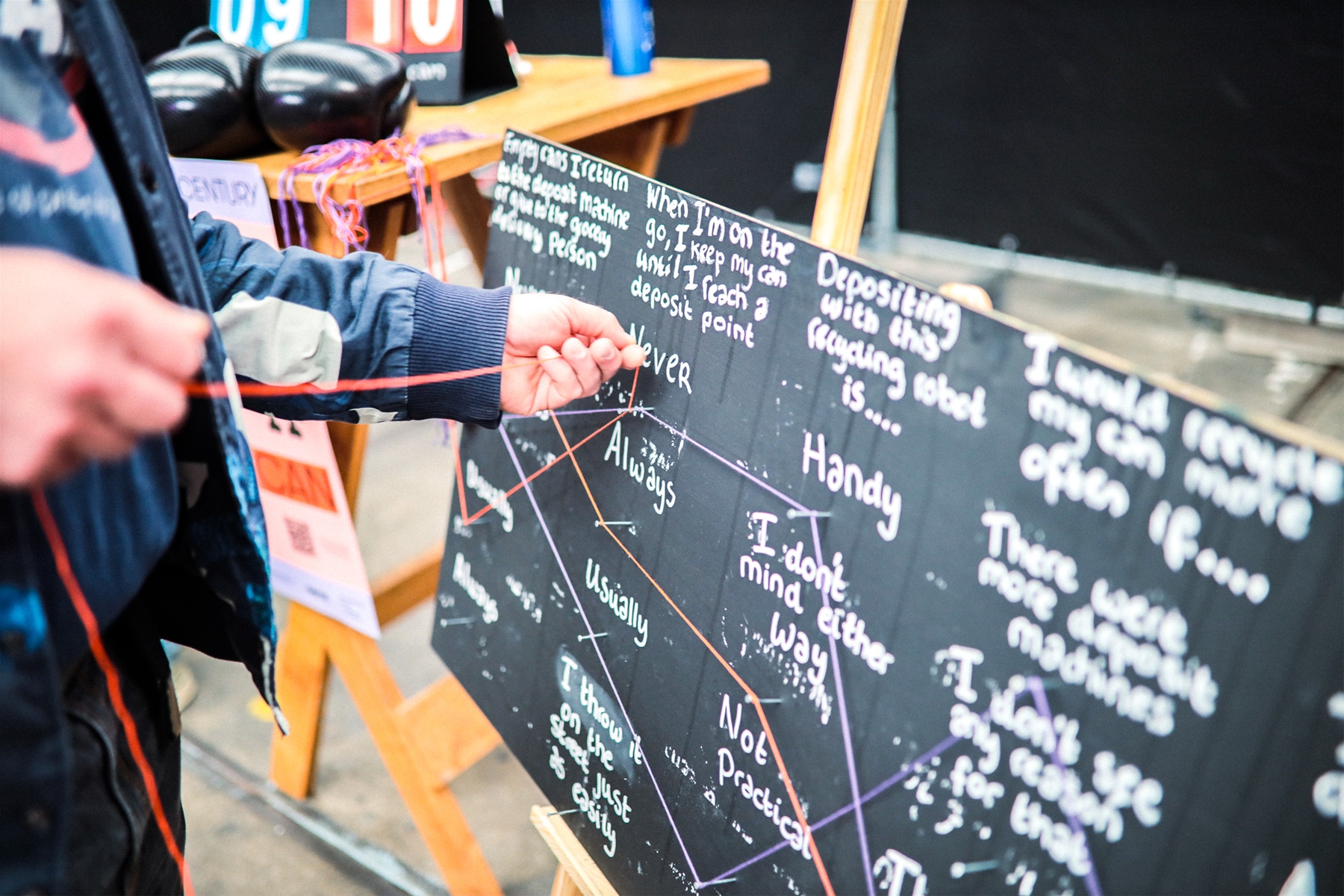
What challenges has DGTL Festival faced in implementing circular practices, and how have these been overcome?
Implementing certain sustainability practices at a festival can be completely new and never done before, which means it’s a lot of trying sometimes. An example is our circular sanitation project. We are currently close to closing the urine cycle, but there are still some steps that need to be taken. Legal permission and societal acceptance for the use of urine as a raw material need to be obtained. Therefore, it is important to take various steps towards that goal. – At DGTL, we collect all urine from across the entire festival site. We needed at least 6 cubic meters to make the test successful. We purified the water through a test setup and then purified the remaining water through trees. Additionally, we made fertilizer from the nutrients in the urine, which will be used for the trees.
Next year, the trees will hopefully be placed at NDSM, and we will distribute fertilizer made from our own urine to visitors. We will investigate the necessary steps to submit a paper application for an end waste status. Furthermore, we will collect urine, conduct lab tests to demonstrate the quality of the NK concentrate and irrigation water, followed by tree cultivation trials to demonstrate the purifying effect of trees and measure the effect of fertilizers and irrigation water on the trees. Throughout the entire project, all insights will be gathered, and lessons learned will be captured so that we can develop a business case for the nutrient cycle. With DGTL, we are both the source and the user, collecting thousands of liters of urine from the festivals where we are active. These projects take a lot of time and dedication, which can be challenging but also very rewarding.
We work with a lot of partners to organize our festival, which also means convincing them to join us in operating as sustainably as possible. For example, we encourage our suppliers to deliver certain products environmentally friendly. It’s amazing to see that the partners that we work with join us in our road to circularity and actively think along with doing things as green as possible.
How do attendees respond to DGTL Festival’s circular initiatives? Have they provided positive feedback or suggestions for improvement?
After each edition, we ask our visitors about their opinions on our sustainability efforts. The responses are predominantly positive. Over the past 2 years, we have averaged a score of 7.7 on this aspect. Given that sustainability is deeply ingrained within DGTL, the majority of our visitors are familiar with and supportive of our efforts.
To what extent has DGTL Festival’s circular approach contributed to reducing the festival’s ecological footprint?
In 2022, DGTL became the world’s first circular dance festival. Over the next few years we plan to go further, using the Doughnut Economy Model. Visitors will be encouraged to take responsibility for their travel emissions, in line with our continual commitment to organize events that actively produce the lowest carbon emissions possible.
What partnerships has DGTL Festival formed to achieve its circular objectives?
We’re always looking to collaborate with partners that share our intrinsic motivations to create a greener festival. Food is a big part of this. Three-quarters of the world’s agricultural land is used for livestock farming, while this industry provides only 18% of the human calorie intake. In addition, this industry is responsible for 15% of global CO2 emissions, which is more than the entire logistics sector. That is why we decided to go completely vegetarian in 2016. Through a new partnership with Beyond Meat, we can offer the same experience to visitors, but without the negative impact. With this initiative, we save 73% CO2 emissions. Besides the fact that the dishes are vegetarian, they are also organic and locally sourced as much as possible. During DGTL Amsterdam 2024, we sold over 1.322 Beyond Meat Burgers, resulting in a conservation of 281.176 liters of water—equivalent to 4.309 football pitches!
Are there plans to expand further or enhance DGTL Festival’s circular approach in the future?
As we’re very aware of our environmental impact, we’ll continue to further improve our sustainability efforts in the future and adapt the Doughut Economy model. An example of something that we’ll further research and develop is the drinking water consumption monitoring: We’ve installed water meters to accurately gauge our water usage during DGTL Amsterdam 2024. This includes tracking the volume of drinking water flushed into the sewer, enabling us to develop innovative solutions for future water management.
Another example is the Resource Hub with Oscar Circulair: Collaborating with local enterprises at NDSM to minimize transportation requirements. We’ve forged a partnership with Oscar Circulair, a forthcoming raw material processor setting up its own hub at NDSM. Opting for Oscar Circulair aligns with our commitment to localizing raw material processing. Moreover, this collaboration establishes a lasting alliance at NDSM, facilitating sustained investment in raw material innovation.
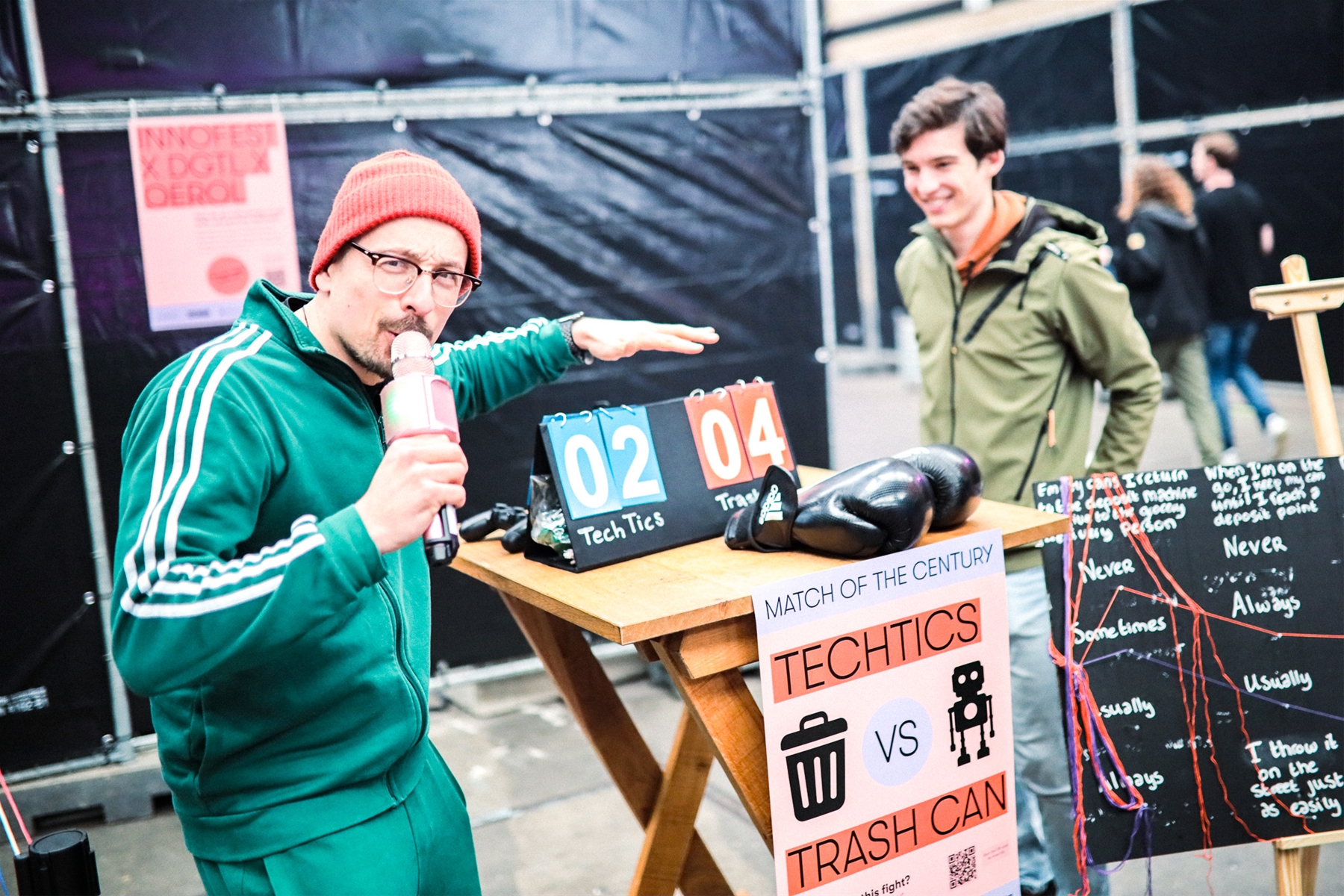
What are some lessons that other festivals or organisations can learn from DGTL Festival’s circular practices?
Organizing a circular festival isn’t the simplest approach to event planning. It demands extensive research, trial and error, and unwavering commitment to getting things right. Despite its challenges, at DGTL, we demonstrate that it’s entirely feasible. We’re dedicated to sharing our acquired expertise with the wider industry, ensuring that we can continue to revel in festival experiences thirty years down the line.


